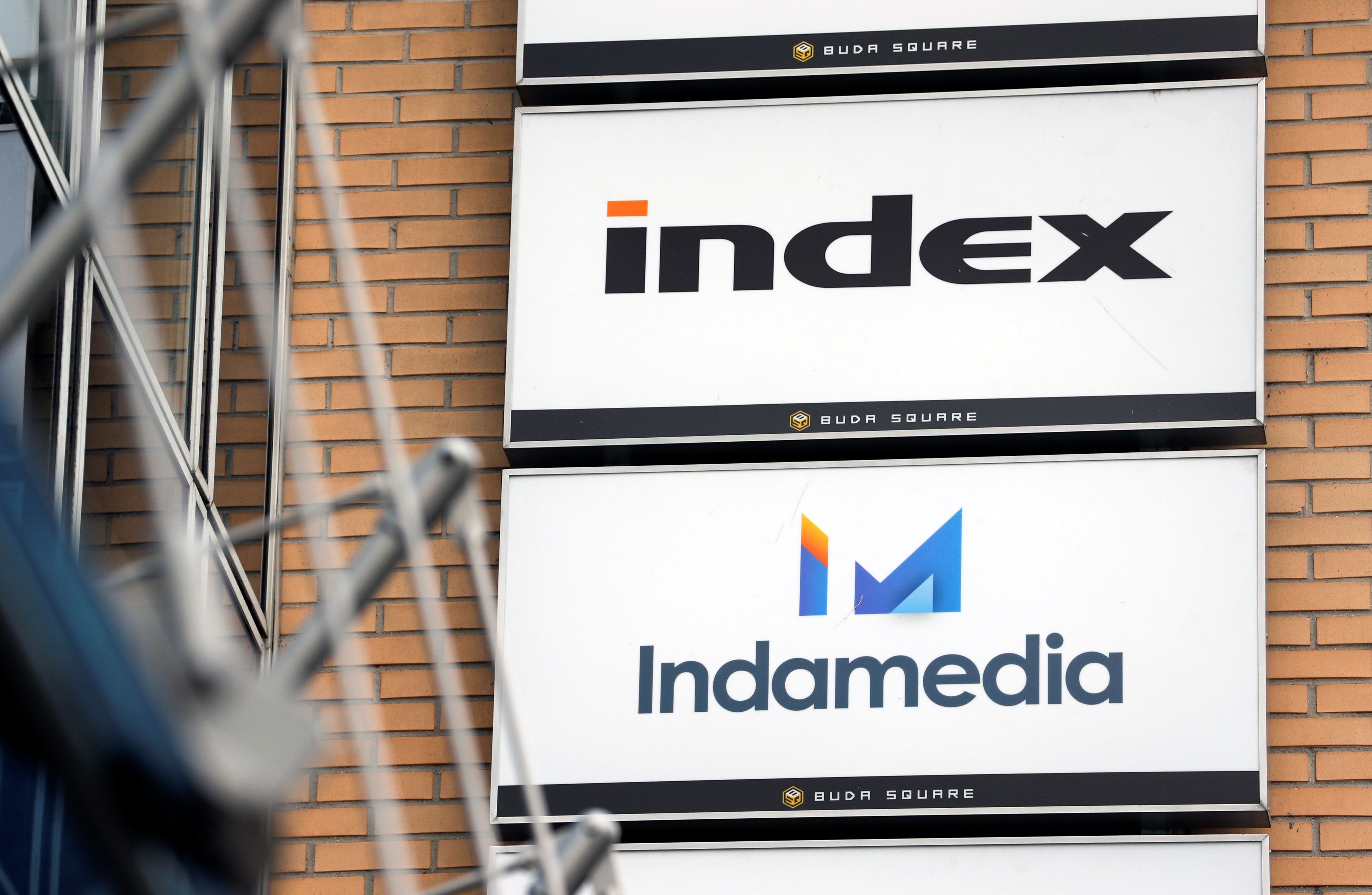Closely-watched Freedom of Speech: The Media in Hungary

The Closure of Index.hu
Index.hu, a government-critical news site, has been one of the most popular websites in Hungary for 20 years. According to polls from 2020, it was regularly visited by 60% of all Hungarian Internet users. The site was operating in a complicated ownership structure. The authorities gained direct influence on running it after the parliamentary election in 2018, when half of the shares in the advertising company which controlled the revenues of Index and in the company holding the founding rights of the foundation that owned the publishing house, were bought by József Oltyán, a politician of the KDNP party, the coalition partner of Fidesz. After selling his shares in March 2020 to Miklós Vaszily, former chairman of Hungarian public media, the board of directors proposed changes in the functioning of the editorial office, including writing articles by external companies, to which the editor-in-chief, Szabolcs Dull, objected. He was formally released for leaking trade secrets. As a result, all journalists of Index.hu resigned in protest, and announced their intention to create a new medium.
The Media Market. The Hungarian media market went through a transformation after Fidesz took power in 2010. The declared goal of the government's media policy was to ensure market balance by strengthening the right-wing media in the face of a significant advantage, in its opinion, of left-liberal media. However, this policy resulted in subordinating a large part of the media market to the interests of the ruling party. According to 2019 estimates by the Mérték Médiamonitor institute, in the news media segment, government-related companies and public media unequivocally broadcasting pro-government content account for 77.8% (including 64% private media) of total market revenues. As a result of ceasing activity by Index.hu, a pure government-friendly tone will dominate the information segment of the Internet, as well as the radio, television and press market.
According to surveys in 2018, the most important source of information on politics in Hungary is television, used for such purposes by 71% of respondents. The advantage of pro-government TV stations is clear. Although the market leader is the non-governmental RTL Klub, an entertainment channel, whose news is regularly followed by 90% of survey takers, the news service of the pro-government TV2 station has a similar reach (86%), and public television channels fare only slightly worse (78%). The Internet and radio are less important for informing the public than television. They are used by 35% and 29% of respondents, respectively. Public radio has the highest audience among broadcasters, and Index.hu was the most visited of the news portals. Fifteen per cent of Hungarians read dailies regularly. However, 26% of readers from outside Budapest and its vicinity obtain information from local newspapers, which have belonged to government-related companies since 2018 and deliver a unified message.
Hungary's track record in international press freedom rankings is deteriorating. In the 2020 RSF World Press Freedom Index, published before the closure of Index.hu, Hungary was ranked 89th (down two places compared to 2019) out of 180 countries surveyed. This puts Hungary on a similar level to Moldova (91st) and North Macedonia (92nd), and at the same time far behind its partners from the V4. In turn, in the Freedom House rankings for 2019 and 2020, Hungary was the only EU Member State in the group of “partially free” countries, partly due to politicised media regulation and the growing dominance of government-dependent media.
Changes after 2010
Although the government aims to create an information monopoly mainly through economic instruments, it also uses, to a lesser extent, regulations. The law guarantees the constitutional right of freedom of expression and there is no evidence of its systemic violation. However, since 2010 the government has been using tools to gradually restrict freedom of expression, in particular press freedom. Pursuant to the media law passed by Fidesz at that time, parliament decides on the composition of the body controlling the activity of broadcasters (the Media Council). Consequently, Fidesz, which has a majority, nominates all members of the council. As a result, this board regularly takes decisions in favour of entrepreneurs with close ties to the ruling party, including when granting broadcast licences and approving mergers. Under the same law, public media and the Hungarian News Agency were merged into one organisation, and, as a consequence, their pro-government message was strengthened. In addition, in 2015, the scope of access to public information was legally narrowed in matters related to the government’s activities, in particular the spending of public funds.
The government has significantly increased its political influence also on private media, mostly through gaining shares or other influence by entrepreneurs from the ruling parties' entourage. As a consequence, outlets have changed their political message (examples include the newspapers Magyar Hírlap and Magyar Nemzet, the news site Origo.hu, and TV channel TV2) or been dissolved (examples include Népszabadság, the largest Hungarian daily, which operated until 2016, and the weekly Heti Válasz). Previous owners sold their shares partly due to market decisions (Deutsche Telekom sold Origo.hu in 2014). However, in most cases, the transactions may have been influenced by the rules of the Hungarian market, where a privileged position, including access to tenders, is enjoyed by entities maintaining good relations with the government. An example of interference in market processes is the handing over of the majority of pro-government media by their owners free of charge to a newly established foundation in November 2018. This led to a significant concentration of ownership (476 titles, 16% of total revenues in the market). Apart from changing the ownership structure, the shape of the media market was also significantly influenced by the placement of almost all state advertising with pro-government media, for which these advertisements are often the main source of income.
Conclusions and Prospects
The government is eliminating further independent media outlets, mainly by buying them out using friendly entrepreneurs. These are processes which appear to be market transactions and take place with government interference. Competition is distorted by, for example, placing state advertisements in media regardless of their actual reach, capital accumulation and supporting selected business circles. In such conditions, there is a shortage of entrepreneurs who are able and willing to invest in media independent of the authorities. Investigative sites and other smaller editorial outlets are already financed from readers' contributions, and this form of support is likely to become dominant for many independent titles.
The situation of the media in Hungary shows a violation of fundamental constitutional freedoms, especially the freedom of expression, which includes obtaining information without the public authorities’ interference. This is evidence of the country’s deviation from the principles of democracy and towards authoritarianism. It means a lack of candid public debate on any important political or social issue, which is an obstacle not only to holding fair elections, but also, for example, to informing citizens about Russian or Chinese policies and combating disinformation. Lowered standards also weaken the global influence of the EU as an organisation with democratic principles and values.
Despite these documented violations, the EU institutions have not proven any breach of EU law. This is partly due to the lack of instruments, as the Hungarian government's actions are formally compliant with national and EU law due to the necessary legislative changes. Some experts, however, accuse the European Commission of failing to investigate, among other issues, the procurement of state advertisements in terms of unlawful state aid. For these reasons, the dissolution of Index.hu, although it came at an unfortunate moment for the government, right before the autumn negotiations of the details of linking EU budget funds with the rule of law, will not affect Hungary's access to EU funds or the course of the Article 7 TEU procedure against the government.


